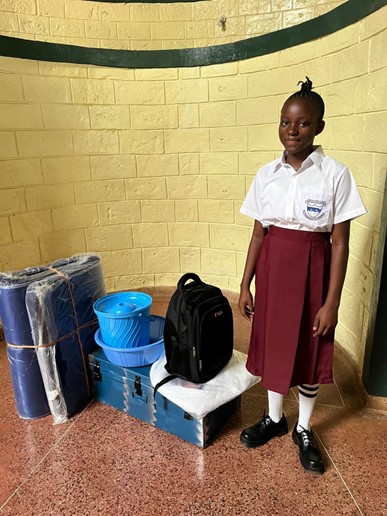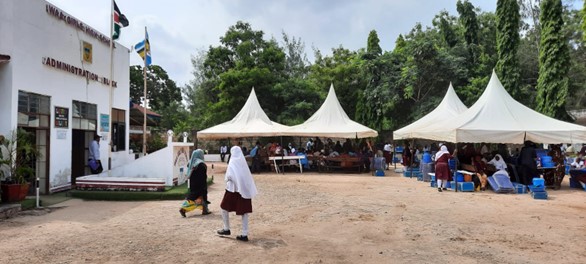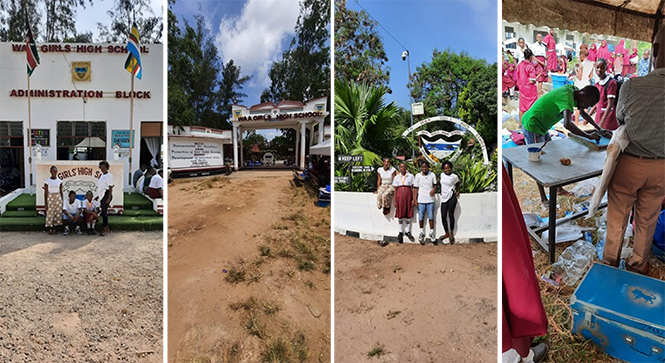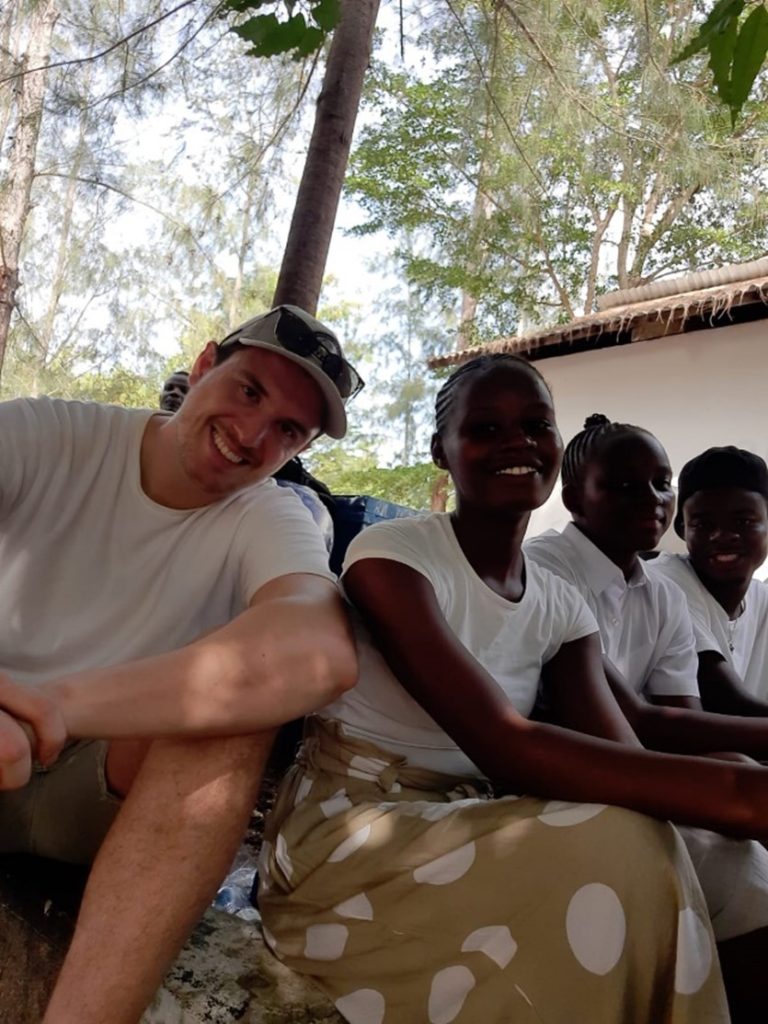School enrolment in Kenya: When it takes longer again

A short report by Michele Verdone (volunteer from Germany): On my second day at UPENDO Children’s Village in Kenya, Gloria’s school enrolment at the public high school was on the agenda. It was an exciting and groundbreaking moment for Gloria – but one that was somewhat spoilt by hours of waiting. For the first time, Gloria’s sister took care of that. Due to her lateness, we didn’t set off until 10 a.m. instead of 9 a.m. – “Pole Pole” (in Kiswahili: “Slow Slow Slow”).
However, our patience was really put to the test by the time-consuming registration process. It comprises five steps, all of which involve a very long wait. Anyone who thinks that the bureaucracy in Germany makes processes slow and difficult will find that things are even more complicated in Kenya. The documents that we had printed out in triplicate for registration took up several folders – including copies of passport photos of the parents/guardians. Thanks to the good preparation by Upendo manager Michelle, registration at the gate went very quickly. Afterwards, all documents were checked for completeness for the first time, so the first unavoidable queue was waiting for us. After we had successfully passed the check by the very stern-looking head teacher, we were allowed to join the next queue: The suitcases and all the belongings that the students bring with them are thoroughly checked here – and sorted out. Whether hygiene articles or provisions: the list of “forbidden” items seems to be very long.

After successfully completing the first three steps in just over an hour, we were cautiously optimistic that we would also get through the other stops fairly quickly. Too soon: the fourth step, checking the payment and, if necessary, paying any outstanding items, turned out to be an endless loop. Four teachers, equipped with very old hardware, were sitting under a tent outside, negotiating with parents who couldn’t pay and being spurred on by parents who could afford a bribe: First some money changed hands underhand, then the parents in question changed their position in the queue. Because we did not support this approach, we spent just over five hours at this station!!!

Finally, we took delivery of Gloria’s school uniform – not without a little more waiting time, of course. Last but not least, there was the branding of the school uniform, which was carried out by two school employees. Each student had around 30 items that needed to be labelled with the appropriate logo. The result: a queue 50 metres long. Here, too, those who were prepared to make generous payments (and thus engage in corruption) made faster progress. This was certainly one of the reasons why the discussions among the parents became more heated. We, on the other hand, waited another two hours until Michelle and Simon prevailed and finally number 6060 (Gloria’s number) was called. After that, we just had to wait until the printing ink used to brand Gloria’s school clothes had dried, the suitcase was securely closed and handed over to the students.
Despite the joy and pride in her achievement, saying goodbye to Gloria was difficult for everyone and very tearful. With these impressions, we set off back to the village, tired after a good eight hours.

